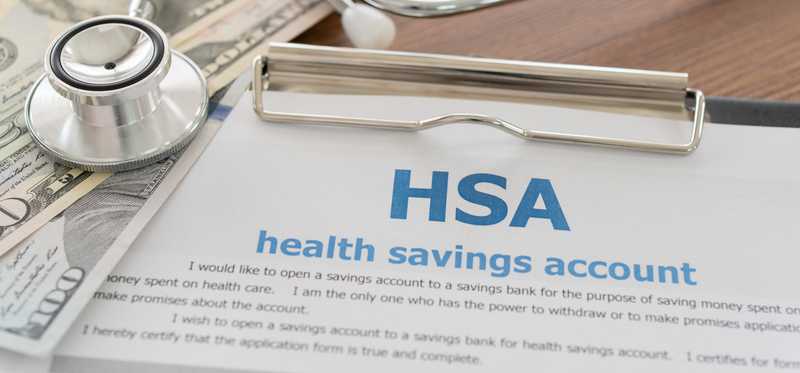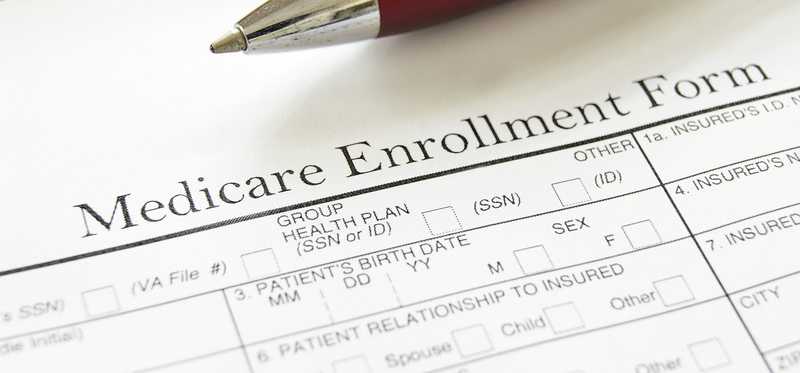15 Things You Need to Know About Health Savings Accounts

15 Things You Need to Know About Health Savings Accounts
It pays to save in an HSA
Health savings accounts, or HSAs, may not be the most commonly used savings plan. But there are many benefits to socking money away in an HSA. Here are a few things you should know about these plans if you're not yet familiar with them.
5 Stocks Under $49
Presented by Motley Fool Stock Advisor
We hear it over and over from investors, "I wish I had bought Amazon or Netflix when they were first recommended by The Motley Fool. I’d be sitting on a gold mine!" It's true, but we think these 5 other stocks are screaming buys. And you can buy them now for less than $49 a share! Click here to learn how you can grab a copy of "5 Growth Stocks Under $49" for FREE for a limited time only.
Previous
Next

1. Not everyone can qualify for one
HSAs are useful savings tools, but unfortunately, they're off the table for those not enrolled in a high-deductible health insurance plan. This year, that's defined as an individual deductible of at least $1,400 for self-only coverage, or $2,800 for family coverage.
ALSO READ: Move Over, 401(k)s: HSAs Are the New Retirement Trend
Previous
Next

2. Contribution limits can change from year to year
Just as the annual contribution limits for IRAs and 401(k) plans can change from one year to the next, so too can HSA limits change. Right now, these limits stand at $3,650 for self-only coverage and $7,300 for family coverage, but that could change in 2023.
Previous
Next

3. Catch-up contributions are allowed
Retirement savers may be familiar with catch-up contributions in IRAs and 401(k)s. Similarly, HSAs allow a $1,000 catchup for older savers. But unlike IRAs and 401(k)s, where catchups begin at age 50, with HSAs, they don't kick in until age 55.
Previous
Next

4. Contributions go in tax free
The upside of funding a traditional IRA or 401(k) is getting a tax break on contributions. HSAs work similarly in that contributions are made on a pre-tax basis.
Previous
Next

5. HSA funds don't have to be depleted from year to year
If you've ever had a flexible spending account, you're no doubt aware that funds not used before your plan year expires are forfeited. With HSAs, there's less pressure, because you can withdraw your funds at any time.
5 Stocks Under $49
Presented by Motley Fool Stock Advisor
We hear it over and over from investors, "I wish I had bought Amazon or Netflix when they were first recommended by The Motley Fool. I’d be sitting on a gold mine!" It's true, but we think these 5 other stocks are screaming buys. And you can buy them now for less than $49 a share! Click here to learn how you can grab a copy of "5 Growth Stocks Under $49" for FREE for a limited time only.
Previous
Next

6. You can invest HSA funds you don't need right away
When you fund a flexible spending account, your money just sits in your account until you incur expenses and take withdrawals. With an HSA, you can invest the money you aren't using so it grows into a larger sum.
Previous
Next

7. Investment gains in HSAs are tax free
Not only can you invest HSA funds you don't need right away, but any gains you score in your account will be yours to enjoy tax free. For this reason, it's good to try to not spend your entire HSA balance year after year, but rather reserve funds in your account that can stay invested for the long haul.
Previous
Next

8. Withdrawals are tax free
Just as withdrawals from a Roth IRA or Roth 401(k) can be taken tax free, so too are HSA withdrawals exempt from taxes. This only applies, however, if you use that money for qualified healthcare expenses.
ALSO READ: What Will Healthcare Cost You in Retirement? Prepare to Be Shocked
Previous
Next

9. You'll be penalized for nonmedical withdrawals
HSAs offer a host of tax benefits, but the flip side is that if you remove funds for nonmedical purposes, you'll be hit with a steep 20% penalty. That's double the penalty for taking an early withdrawal from an IRA or 401(k).
Previous
Next

10. But that penalty goes away at age 65
Once you turn 65, you can withdraw money from your HSA for any reason and avoid penalties. You'll pay taxes on nonmedical withdrawals, but that's no different from the taxes imposed on traditional IRA or 401(k) withdrawals.
5 Stocks Under $49
Presented by Motley Fool Stock Advisor
We hear it over and over from investors, "I wish I had bought Amazon or Netflix when they were first recommended by The Motley Fool. I’d be sitting on a gold mine!" It's true, but we think these 5 other stocks are screaming buys. And you can buy them now for less than $49 a share! Click here to learn how you can grab a copy of "5 Growth Stocks Under $49" for FREE for a limited time only.
Previous
Next

11. You get more time than you'd think to fund an HSA
HSA contributions are made on an annual basis, but you can put money into your HSA beyond a given calendar year. If you want to max out your 2022 HSA, for example, you have until the 2023 tax-filing deadline to put money into your account.
Previous
Next

12. You can open an HSA through your employer
Many companies offer employees the option to sign up for an HSA, similar to how they offer a 401(k). But if your employer doesn't allow you to sign up for an HSA, you can open one at any financial institution that offers them. Some companies, however, contribute to HSAs on employees' behalf, so it pays to see if this option exists.
Previous
Next

13. HSAs and Medicare don't mix
Once you enroll in Medicare, you're no longer eligible to contribute funds to an HSA. This holds true even if you aren't paying for Medicare -- such as if you've signed up for Part A only, which is generally free, to serve as a secondary insurer to an employer plan.
Previous
Next

14. But you can use HSA funds to cover Medicare expenses
While you can't fund an HSA once you're enrolled in Medicare, you can use the money you already have in your account to cover expenses like premiums, deductibles, and co-pays. These are all considered valid healthcare expenses.
Previous
Next

15. You can use HSA funds to buy long-term care insurance
Long-term care is an expense Medicare commonly won't cover -- and it can be very costly. Putting long-term care insurance in place can help defray the cost of a stay in an assisted living facility or nursing home. And you can use HSA funds to pay the cost of long-term care insurance premiums.
5 Stocks Under $49
Presented by Motley Fool Stock Advisor
We hear it over and over from investors, "I wish I had bought Amazon or Netflix when they were first recommended by The Motley Fool. I’d be sitting on a gold mine!" It's true, but we think these 5 other stocks are screaming buys. And you can buy them now for less than $49 a share! Click here to learn how you can grab a copy of "5 Growth Stocks Under $49" for FREE for a limited time only.
Previous
Next

It pays to save in an HSA
HSAs are a uniquely advantageous savings tool because they're flexible and triple tax-advantaged. It pays to read up on how HSAs work and open one if you're eligible based on the health plan you're enrolled in.
The Motley Fool has a disclosure policy.
Previous
Next
Invest Smarter with The Motley Fool
Join Over Half a Million Premium Members Receiving…
- New Stock Picks Each Month
- Detailed Analysis of Companies
- Model Portfolios
- Live Streaming During Market Hours
- And Much More
READ MORE
HOW THE MOTLEY FOOL CAN HELP YOU
-
Premium Investing Guidance
Market beating stocks from our award-winning service
-
The Daily Upside Newsletter
Investment news and high-quality insights delivered straight to your inbox
-
Get Started Investing
You can do it. Successful investing in just a few steps
-
Win at Retirement
Secrets and strategies for the post-work life you want.
-
Find a Broker
Find the right brokerage account for you.
-
Listen to our Podcasts
Hear our experts take on stocks, the market, and how to invest.
Premium Investing Services
Invest better with The Motley Fool. Get stock recommendations, portfolio guidance, and more from The Motley Fool's premium services.